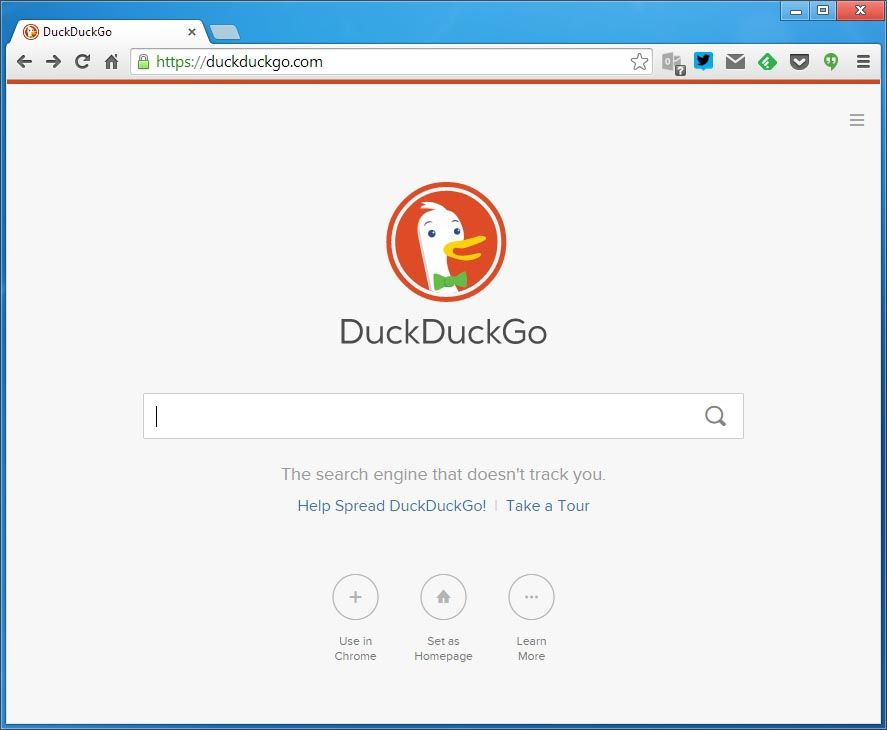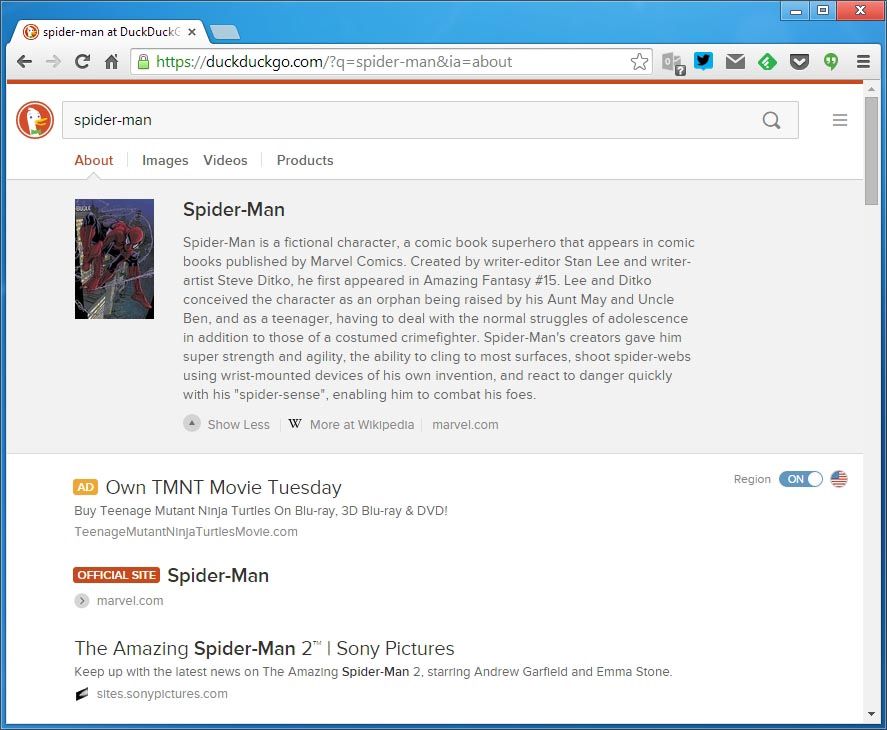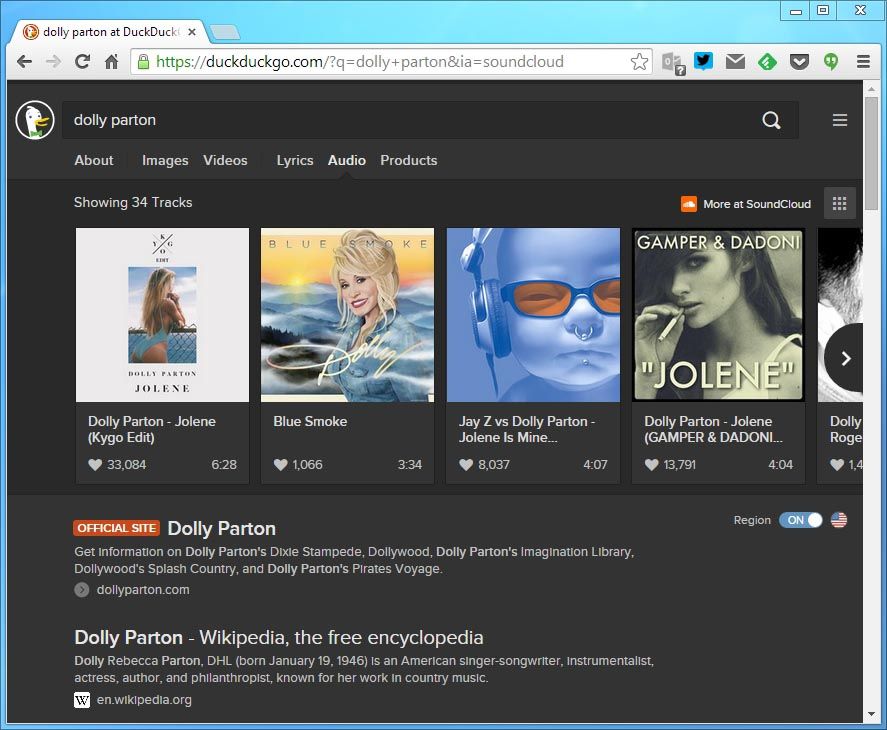It’s highly tricky to compete with Google in basically any sector whatsoever, especially if the aim is to try to challenge the company’s search engine. While Bing and Yahoo have a higher market share, DuckDuckGo has nevertheless become one of the best Chrome alternatives out there over the last few months, with its success built on three basic pillars: protecting your privacy as you browse, offering quality results, and making use of third-party services to display the info you need.
Where did DuckDuckGo come from?
A recurring complaint when it comes to using Google applications is how intensively they tracks your browsing habits to offer you ads and personalized recommendations based on your history. DuckDuckGo was born in 2008 at the hands of the developer Gabriel Weinberg as a free, open-source project aimed at offering a search engine that did not compile user information without sacrificing quality in search results. The project grew after securing investments and other, altruistic funding, and currently has 20 employees and a business model based on including in your search results non-personalized ads that can be completely hidden by unticking an option in the settings menu.

Its API gives preference to results taken from information communities like Wikipedia, Wikia, or GitHub, and also integrates info from a host of external services directly into the results page. Thus if, for example, you search for a Twitter handle preceded by the @ symbol, you’ll get the person’s bio directly without having to click on any links. This potential grows enormously with the use of so-called ‘!bangs’, as we’ll explain in a second.
A powerful search engine
The search will generate a series of contextualized sections depending on the topic. Besides delivering related links, you’ll have a carousel at the top that divides the content into categories. Besides images, videos, and news, you might also get panels with detailed definitions. If, for example, you search for ‘Spider-Man’, you can see info from its Wikipedia entry directly in your search results, and there will also be a ‘Products’ tab that recommends related purchases on Amazon and eBay. If, in turn, you search for a music group, you’ll get a tab with links to songs via SoundCloud.

Up to this point everything looks a lot like Google’s advanced results, but one of its differences is more than obvious: you don’t have to open an URL to see its content, and can view right from the search engine itself everything from YouTube videos to songs to the aforementioned Wikipedia entries. That said, the !bangs we mentioned above make it possible to expand these associations even further. By adding a keyword preceded by an exclamation point to your search term, you can contextualize your search in a particular site or area. There are hundreds and hundreds of these. To get an idea, if you search for ‘shoes !a’ you’ll automatically be taken to an Amazon results page for shoes.

Customizable and versatile
The web version is fully functional on all sorts of machines, whether mobile or desktop. Also, there are extensions for most current browsers to integrate some of their search options, although most of these are already offer DuckDuckGo as one of their default search engines (as in the case of Safari or Firefox itself in their latest versions).
It’s also possible to customize the experience at all levels, with various visual themes that you can select (or even create your own), as well as all sorts of options beyond removing ads when it comes to displaying the results, including changing the number of results displayed per page and the default language.




![How to use Android without depending on Google services [Tutorial]](https://blog.en.uptodown.com/files/2016/11/android-sin-google-featured-2-218x150.jpg)







Esto podría ser un chiste, mas, por ser realidad se transforma
en un acto de macabro sentido del humor por la parte de los asaltantes.
I’m gone to inform my little brother, that he should
also visit this web site on regular basis to take updated
from newest gossip.
[…] That said, its default preset browser is Yahoo, but that’s easily remedied if you opt for DuckDuckGo. […]
[…] From this humble corner of the Internet we toast their achievement and hope their growth continues in the future. To find out more about DuckDuckGo, check out our guide to this alternative search engine whose sole raison d’etre is to protect your privacy. […]